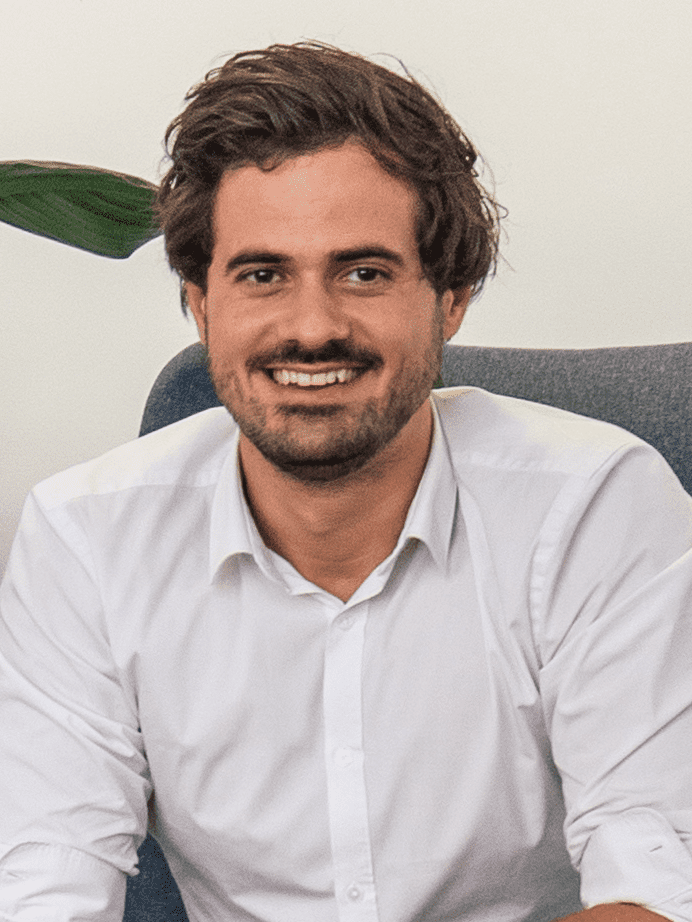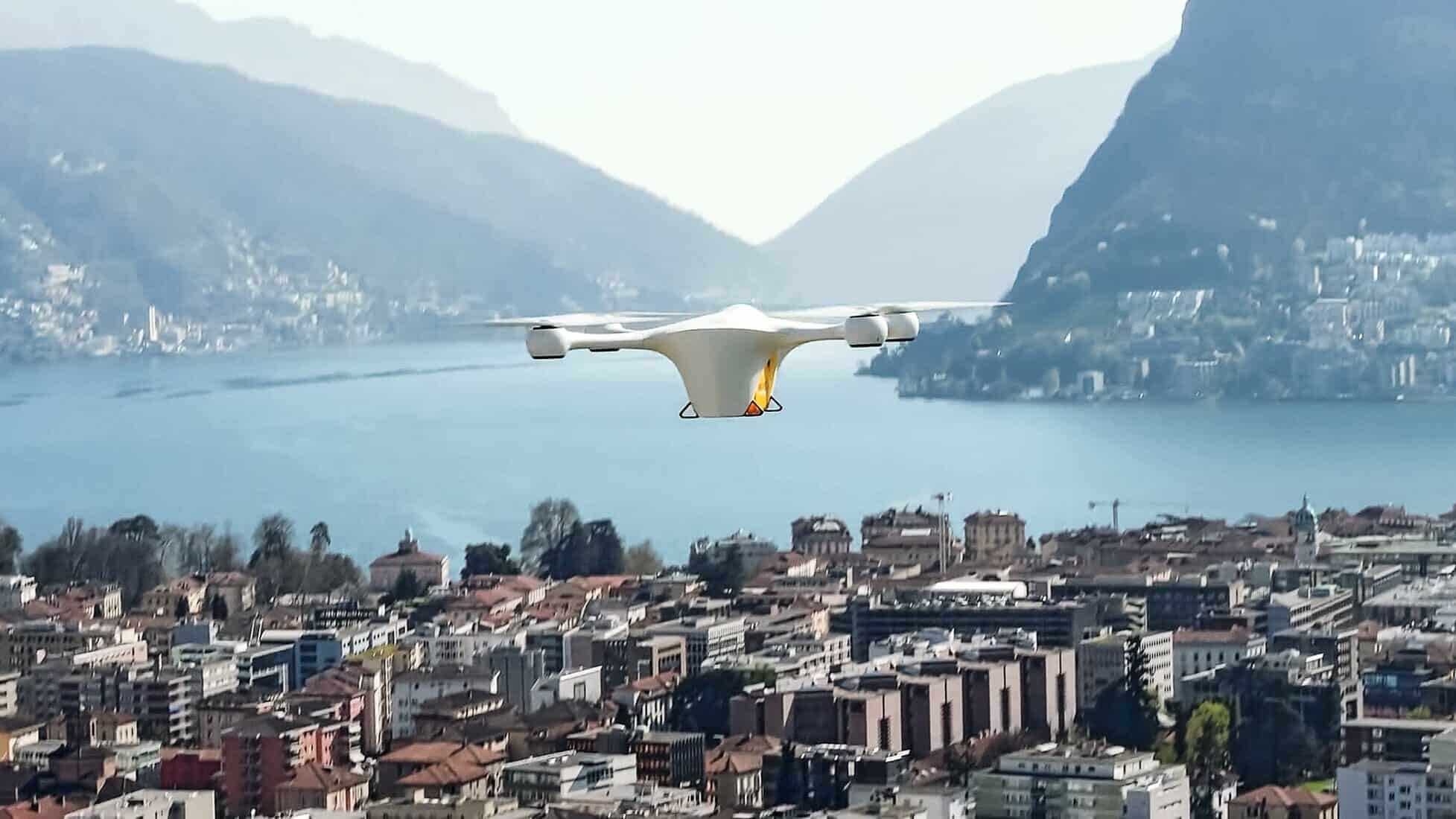Startup Locatee has created the first globally scalable Workplace Analytics platform. Machine learning algorithms analyse and anonymise data from the existing IT infrastructure continuously and in real-time. In this interview, Co-founder Thomas Kessler describes how companies such as Swiss Re use Locatee’s software to improve their decisions about office space.

Co-founder and CEO, Locatee
Thomas Kessler co-founded Locatee with Benedikt Köppel in 2015. Locatee is a solution for corporate real estate teams that allows optimizing the use of office space and offers unprecedented insights into the use of infrastructure. Thomas has a Master of Arts in Business Innovation from the University of St. Gallen.
You co-founded Locatee with Benedikt Köppel in 2015. How did you two meet?
We went to high school together. My background is in business; initially in banking. Benedikt’s studied electrical engineering at ETH Zurich. We are the typical pair of founders in Switzerland: an ETH engineer and someone who studied at the University of St Gallen.
What led you to co-found Locatee?
During my studies, I worked for Credit Suisse and Benedikt worked for UBS. We both realized, from different angles, that there is a lot of data missing when it comes to how real estate is managed. The Credit Suisse office had this new, modern concept where I didn’t have my own desk. One day, students came in to count the number of people in the building. The corporate real estate wanted to know how full the building is and whether it is big enough. Benedikt had a similar desk setup at UBS. “Every day, people ask me: where is Thomas? Where is Peter?” he told me. “If only I had access to the IT infrastructure, I could find out where a laptop is connected.” And then it clicked: we could measure how many people are in the building based on their devices.
What problem did you set out to solve?
The problem began long before the pandemic. Companies started to allow people to work from home on some days. On average, before the pandemic, office buildings were utilized less than 50%. This has a massive cost: real estate is the second-largest item in a company’s PnL. A single desk in cities like Zurich or New York costs $15,000 a year – which is huge, if you imagine that half your desks are empty. In addition to a cost problem, there is an environmental problem: empty office buildings – which require energy to build, operate, heat and cool – are contributing to climate change.
Is there a human dimension, too?
The problem has three dimensions: costs, climate change – and the employee experience. This makes it important to understand how people behave at the office. They need to like being there. If it consists of smelly cubicles, no-one wants to work there. Well before the pandemic, organizations started to introduce more flexible work environments; nice Google-style offices where not everyone has his or her own desk. We provide the data to utilize the buildings in the right way and make sure that it matches the experience you wish to offer employees.
How has the situation changed with the pandemic?
Pre-Covid, the employer defined where employees worked. Since the pandemic, people have had the power to decide where they work; from the office, from home or from a co-working space closer to home. This fundamentally changes how an enterprise needs to be managed and how real estate operates. It is no longer the case that “one Thomas equals one desk”; it is highly unpredictable. This unpredictability of where people are is the challenge that we address.
Where does Locatee come in?
We are coming from a real estate analytics perspective; we started to analyze which desk is in use and how. The exciting thing is when you start looking at employees’ behavior. How many times does a person show up at the office? How often does a person work from home? Although we are started with a real estate perspective, we are increasingly coming at it from a people perspective, because employees now define where they work. Today, if you do not offer flexibility and hybrid work, you risk losing employees. We help organizations transition to the new normal and manage their workforce.
How does Locatee help companies manage hybrid work?
When you go to the office and sit down at a desk, our technology realizes, using existing data sources and hardware sensors, that this desk is now in use. We pass on this information to the corporate real estate team, so that they know how much space they actually need. For example, do they need to renew the lease? Are they providing enough desks and meeting rooms? An additional layer in this is the behavioral layer: how often does the marketing or engineering team show up at the office? We then correlate that with insights on engagement. Our vision is to take this beyond the office, so that the enterprise understands what the right setting for every person is, across all work environments. This is where we are going: enabling a place where people love to work, through data and technology.
Could you share some examples?
Absolutely. One of our customers, Swiss Re, used Locatee to make a decision about office space in Munich: whether to give back half a floor to the landlord, reducing the costs by about 300,000 euros, and reinvest it into better-quality office space. Basically: less office space, but better quality. Our data helped the company make a decision and communicate it to employees. Another one of our customers, PostFinance, displays Locatee data on a screen at its office in Bern that shows how many desks are already being used on any given floor, so that you don’t need to walk around to find a space to work.
“You can use our data to make fact-based decisions. Companies typically save 10-20% of real estate costs.”
What is your business model and what are the associated cost savings for companies?
Our business model is software as a service (SaaS); you subscribe your buildings to our service. Depending on the challenges you face and your business objectives, you can use our data to make fact-based decisions. Companies typically save 10-20% of real estate costs. As I mentioned earlier, these are the second-largest cost item, so there is a big chunk to money to be made as a return on investment. If a desk costs $15,000, it adds up to a high number; you quickly get into the millions and billions in real estate costs for a large organization.

Invest in Startups
As one of Europe’s most active venture capital investors, we grant qualified private investors access to top-tier European startups. With investments starting at EUR/CHF 10’000, you can build your own tailored portfolio over time and diversify across stages and sectors.
What kind of companies do you work with?
We deliberately only focus on employers with more than a thousand employees. The smallest company has around 800 employees, but it goes up to more than 100,000 employees. Our solutions work at smaller companies too – we use them for our own offices – but it is a matter of focus: the bigger the real estate portfolio, the bigger the problem and the higher the savings you can generate.
What sets you apart from your competitors?
One competing solution I mentioned earlier is students walking around the building and counting, but that does not give you continuous data and it costs a lot. Some of our customers paid more than 1 million for manual occupancy studies before they had Locatee. The second bucket of competitors is IOT solutions, using motion-detection sensors under each desk. These cost a lot too: you need to ship the hardware all over the world and maintain it; it’s a nightmare. This is where Locatee comes in. Two things set us apart. Firstly, we are data agnostic; we can handle data coming from devices such as mobile phones or use sensors that are already installed. Secondly, benchmarking. We can use our data to create insights and help our customers compare themselves to their peers.
How does Locatee’s solution protect privacy? Is the data anonymized?
Our full solution is GDPR-compliant and fully anonymized. The company is simply informed that a person showed up and that that person is from the marketing team. The data is adjusted if the number is below five people, so that no-one can track a single individual. This is a very important ethical question; you don’t want to go down that path of employee tracking. We use a privacy-by-design approach so that the solution doesn’t allow anyone to do it, not even IT people with access to the database.
What is the potential for growth in the wake of the pandemic?
Today, we are present inbuildings in more than sixty countries, and our team has over sixty people. Covid brought challenges, but also a big opportunity. It turned the market upside down in terms of where people work. This creates a very strong momentum in the market: everyone is now working hybrid. Every organization is discussing how its employees should work. Our data can help them make better decisions.
What are your priorities for Locatee for the year ahead?
They are all about growth: gaining more customers, expanding marketing and sales, and doubling down on the US. We already have a team there and want to expand there to really win that market. If you want to make it in SaaS, you need to win the US market. We can become the leader in workplace analytics, this new category that we are creating.
Written by
WITH US, YOU CANCO-INVEST IN DEEP TECH STARTUPS

Verve's investor network
With annual investments of EUR 60-70 mio, we belong to the top 10% most active startup investors in Europe. We therefore get you into competitive financing rounds alongside other world-class venture capital funds.
We empower you to build your individual portfolio.
More News
22.02.2022
Increase employee engagement in a time of hybrid work
How do you ensure employee engagement when working from home is the new normal? Startup cofenster gives internal communications a tool to produce good-looking videos with a few clicks. The startup, which was only founded in 2020, already counts Accenture, Migros and Beiersdorf among its clients. In this interview, CEO Tom Vollmer explains why corporate communication needs to become more personal.
02.09.2020
“We don’t need innovation per se, what we need is profitable growth”
Understanding how corporate venture departments work is beneficial for startups and for co-investors alike. Swiss Post has strong ties to Verve Ventures and has co-invested on several occasions with us. In this interview, Thierry Golliard talks about the future of postal services, the benefits of looking at China, and what kind of startups Swiss Post is interested in.
08.06.2020
Workhero.co, a new way to improve job prospects
Our portfolio firm Firstbird launches WorkHero, a new platform for non-desk workers who lost their jobs. It is based on the idea that recommendations and trust are sometimes more important than just a CV.
Startups,Innovation andVenture Capital
Sign up to receive our weekly newsletter and learn about investing in technologies that are changing the world.




